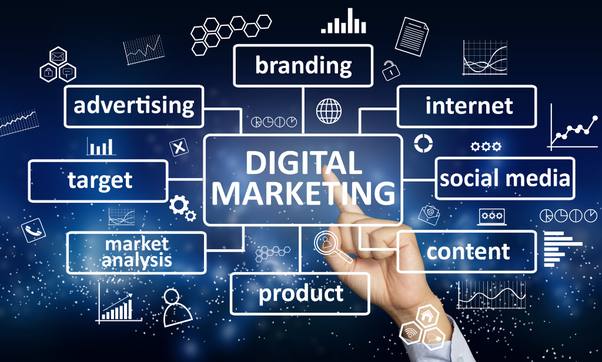Ph.D. in Digital Marketing: Introduction, Admission, Registration, Eligibility, Duration, Fees, Syllabus 2024

Introduction:
In an era dominated by digital landscapes, the significance of understanding and mastering digital marketing cannot be overstated. As businesses continue to shift towards online platforms, the demand for experts in digital marketing is skyrocketing. To meet this demand and cater to the evolving needs of the industry, many academic institutions are now offering Ph.D. programs specifically tailored to digital marketing.
Admission Process:
- Research and Identify Programs: Begin by researching universities or institutions offering Ph.D. programs in digital marketing.
- Application Submission: Submit an application form along with academic transcripts, letters of recommendation, statement of purpose, and any other required documents.
- Entrance Exams: Some institutions may require candidates to appear for entrance exams like GRE or GMAT.
- Interview: Shortlisted candidates may be called for an interview to assess their suitability for the program.
- Acceptance: Upon successful completion of the admission process, candidates receive acceptance letters from the institution.
Eligibility:
- Master’s Degree: Candidates must hold a master’s degree in marketing, business administration, or a related field.
- Research Experience: Prior research experience in marketing or a related field is preferred.
- Academic Excellence: A strong academic record, typically with a minimum GPA requirement, is essential.
- Language Proficiency: Proficiency in the language of instruction, usually English, is required.
- Work Experience: Some programs may prefer candidates with relevant work experience in marketing or a related field.
Completion Time:
The completion time for a Ph.D. in Digital Marketing varies depending on factors such as program structure, research topic, and individual progress. On average, it takes around 3 to 5 years to complete the program.
Career Opportunities:
- Academia: Opportunities to become professors or researchers in academic institutions.
- Industry Experts: Positions as digital marketing strategists, consultants, or analysts in various industries.
- Entrepreneurship: Launching startups or consultancy firms specializing in digital marketing.
- Corporate Leadership: Executive roles in marketing departments of multinational corporations.
- Public Sector: Opportunities in government agencies or non-profit organizations focusing on digital outreach and engagement.
Syllabus:
- Advanced Marketing Theory: In-depth study of marketing concepts and theories with a focus on digital applications.
- Consumer Behavior Analysis: Understanding consumer psychology and behavior in digital environments.
- Digital Analytics: Utilizing tools and techniques for data analysis and interpretation in digital marketing.
- E-commerce Strategies: Exploring strategies for effective e-commerce implementation and management.
- Social Media Marketing: Harnessing the power of social media platforms for marketing purposes.
- Search Engine Optimization (SEO): Strategies to improve website visibility and search engine rankings.
- Digital Advertising: Examining various forms of digital advertising and their effectiveness.
Internship Opportunities:
- Industry Collaborations: Many programs have collaborations with industry partners, providing students with internship opportunities.
- Research Projects: Students may undertake research projects with companies, gaining practical experience in digital marketing.
- Summer Internships: Some institutions facilitate summer internships for students to apply their theoretical knowledge in real-world settings.
- Networking Events: Participation in networking events and conferences can lead to internship opportunities through professional connections.
Scholarships and Grants:
- Merit-Based Scholarships: Awarded to students based on academic excellence and research potential.
- Need-Based Grants: Offered to students with demonstrated financial need to support their education.
- Research Grants: Funding provided for research projects or dissertation work related to digital marketing.
- Institutional Scholarships: Some institutions offer scholarships specifically for Ph.D. students in digital marketing.
- External Funding: Students are encouraged to explore external funding opportunities such as government grants or industry sponsorships.
FAQs:
Is work experience mandatory for admission to a Ph.D. in Digital Marketing?
While work experience is preferred, it may not be mandatory for admission. However, relevant experience can strengthen your application.
Can I pursue a Ph.D. in Digital Marketing with a non-marketing background?
Yes, candidates from diverse academic backgrounds can apply, provided they meet the eligibility criteria and demonstrate a strong interest in digital marketing.
Are online Ph.D. programs in Digital Marketing available?
Some institutions offer online or hybrid Ph.D. programs in digital marketing to accommodate working professionals or students unable to attend on-campus classes.
What research opportunities are available in a Ph.D. program in Digital Marketing?
Research opportunities include studying consumer behavior, analyzing digital marketing strategies, developing marketing models, and exploring emerging trends in the field.
How can a Ph.D. in Digital Marketing benefit my career?
A Ph.D. in Digital Marketing equips you with advanced knowledge and skills essential for leadership roles in academia, industry, entrepreneurship, and the public sector.
